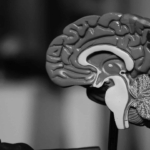“Know that you have complete control over what you put in your mouth. No one ever ate anything by accident.”
Charles Poliquin March 5, 1961 – September 26, 2018
To kick right off, Carbohydrates are neither good nor bad.
So what are they?
Well, carbohydrates are simply another nutrient, and as with any nutrient they are needed and should be used in the right place at the right time. Imagine cooking your favourite meal, if you were to put one of the ingredients into the pot too early it might ruin the flavour or texture of the dish, and too late you might find the ingredient hasn’t been cooked. Carbohydrates are the same, they have a time and a place to produce great results, though the wrong time and the wrong place can ruin the dish.
Carbohydrates or simply ‘carbs’ are a major topic within nutrition, from fat loss to sports performance there has been lots of debate about how many carbohydrates you should consume, this has led to confusion and misunderstanding amongst the general population about the role of carbs. It is a vital nutrient that we do need, but with carbohydrates, we need a good and effective strategy and in this article, we will go through the details on why you need carbs, how much to have and when to have them.
What are the benefits of Carbohydrates?
When you fuel up your car, the fuel you use will factor into the car’s performance. The wrong fuel octane rating will impact the engine’s function.
As with anything you eat, you’d want to know what benefit it has for your body, how many nutrients it provides, how much, and so on. So what’s good about carbohydrates?
Carbohydrates are a good source of fibre, and fibre is, in fact, a form of carbohydrate, with fibre being beneficial for gut flora, gut motility and digestion. Potatoes, oats, rice and green vegetables are all good sources of fibre.
We can also get a good dietary source of B vitamins (B1 thiamine, B2 riboflavin, B3 niacin), rice being a great carbohydrate source, so there are some important micronutrients to be obtained from carbohydrates.
They also provide the chemical energy to help fuel muscular work, so carb intake is important for those who are very active, play a sport or train a lot.
So how much carbohydrate do you need?
How long is a piece of string?
There is no definitive answer, but one thing’s for sure, the length of string you need depends on the measurements you have taken.
As is the case with carbs, there is no definitive answer…but just saying “it depends” is not of any practical help for you, so with carb intake there several things to consider first:
- Body fat percentage (how lean you are)
- Training volume
- Muscle mass
- Subscapular/Supra-iliac sites (i.e how much body fat is carried in these areas).
These generally will determine how many carbohydrates you can have and positively tolerate.
- The more body fat you have generally the fewer carbs you will need. This is because increased body fat comes less ability to tolerate carbs. Those with more body fat and less muscle are less insulin sensitive, insulin being the hormone that manages blood glucose after we eat a meal, so the carbs consumed are not as well managed and may end up being stored as fat. Someone at 32% body fat will not be able to handle carbs as well as someone at 11% body fat, so consequently, these two people’s carb intakes will be different.
- For training volume, the more training you do and the more work you get done, the more carbohydrates you may require. This is because carbs are the main chemical fuel source for muscles to contract, if the muscles are having to perform lots of work then they will need replenished fuel stores. An office worker training 2-3 days per week won’t need as many carbs as a strength athlete training 4-5 days per week. Charles Poliquin used this as a guide for post-workout carbohydrate recommendations:
12-72 reps per workout : 0.6 g/kg
72-200 reps per workout: 0.8 g/kg
200-360 reps per workout: 1.0 g/kg
360-450 reps per workout: 1.2 g/kg
- Muscle is a highly metabolic tissue, the more of it we have the more we need to eat to maintain the tissue. The more muscle we have (and you don’t have to be a bodybuilder!) the more insulin sensitive we will be and the better we can tolerate carbs.
- Where we store fat on the body is a reflection of our hormonal profile, toxicity and more, so when we look at the subscapular (below shoulder blade) and suprailiac (above the hip) sites, if we store much of our body fat at these 2 areas then we are generally speaking less able to tolerate carbs. This requires a skinfold body fat measurement but shows the individual variance in carb tolerance.
Essentially, the leaner, the more muscle, the more activity and training, and the better skinfold measurements you have… the better you will be able to utilise carbs and so you can consume more. Though, this does not mean that a very low carb or no carb approach is best for those who have higher body fat, less muscle and so on.
Carbs, Sleep and the Myth of No Carbs After 6 pm
Carbs also have a positive effect on sleep by shortening onset to sleep and improving the quality of the sleep, this is because carbs work through serotonin which works in our ‘sleep-wake cycles’ (refs 1, 2, 3). As we have mentioned before serotonin is regarded as the “happiness hormone” but it does more than keep you in a good mood. It helps improve sleep, digestion, anxiety and more. By having some carbs in your diet you increase the amount of an amino acid called tryptophan, this can go to the brain to then produce serotonin and exert some of its positive influence.
Another interesting point to note is that low blood sugar levels in the night can be disruptive to sleep, this is because low blood sugar in the night causes certain hormones to be released to elevate it (8).
Continuous Glucose Monitor (CGM):
The CGM is a way of tracking your blood glucose levels throughout the day, providing great insight into how your blood glucose levels are changing and thus how it is impacting your daily life.
I have covered some interesting observations in this article, I highlight three main points with blood glucose management, namely Individuality, Stress and Sleep. We respond differently to different foods, for one person quinoa may only show a minor blip on their blood glucose levels, but for their neighbours’ it could have skyrocketed.
This would be worth considering if you were really struggling with dips in energy, focus and attention in the day. This extra insight could determine which foods and carb sources are best for you to stabilise blood glucose levels and ultimately improve productiveness, energy, and longevity.
Not all carbs are created equal!
Myths about Carbs:
Type in to google ‘myths about carbs’ and you will find ~1,750,000 results across the internet, and you will also notice just how fanatical some of the myths are that people have made up about carbs and nutrition. Unfortunately, some people believe those myths!
One of the most popular myths is “carbs make you fat”. This is quite simply false. Carbs are not to blame, sugar is not the cause either, fats don’t make you fat, and vegetables and protein certainly won’t.
No food in itself is inherently fattening; however long-term overconsumption of food and an inactive lifestyle will lead to storage of body fat.
So carbohydrates will not make you fat. As mentioned above the leaner, more active, more training and more muscle you have the better you will use carbs.
You may have also heard the myth that “you don’t need carbs after 6 pm” because we are not as active in the evenings. Whilst we are generally winding down in the evening, it would, in fact, be very worthwhile to include carbs in the evening and remove them from your morning meals. This is the complete opposite to the myth, but it will be far superior in terms of improving your hormones and neurotransmitters throughout the day, improving focus in the morning and helping you wind down in the evening before one of the most important parts of your life…sleep!
So why ‘No-Carb’ is not the best solution?
So you now know there are several factors which help guide you on how many carbohydrates you can have, but many believe that the No Carb approach is the way to go to lose fat and get in better shape. Carbs are neither good or bad, they have a function, and removing them completely is not an intelligent approach.
Going ‘No-Carb’ can be stressful to the body, suddenly having a whole macronutrient removed is a drastic change in nutritional habits. There is some evidence that removing carbs can raise cortisol via metabolic pathways, so having some carbs is part of cortisol management (7). While another lesson learned from Christine Maurice is how insulin and cortisol can compete, so having a moderate portion of carbs can raise insulin which in turn will lower cortisol. In turn, lowering body fat.
Think about it also from a psychological and mental approach, many of us like to have some carbs as part of our diet, so when we remove that completely it will then become a stressor, and for most people, it will be hard to adhere and sustain to a No Carb approach which won’t produce long term results.
One more thing to note is that going ‘No-Carb’ does not make a diet Ketogenic, Wolfgang Unsold rightly points this out in his article (6), so if you use a Keto style diet or are looking into that, then you don’t just remove carbs but you must adjust your fat and protein intake considerably also.
Conclusion
So what’s the deal? Carbs are not good and they are not bad either?
They aren’t anything in particular, aside of course from being a nutrient.
We need to get out of the mindset of thinking foods have to be ‘labelled’ or thinking foods are either good or bad. As we have talked about in this article, carbs have a time and a place based on the factors we have mentioned above, they don’t fall into a set category.
Consultations
We’re always here to help. If you have any questions or would like advice about supplements, nutrition, or training, please book in for a consultation.
Disclaimer
Always speak with your physician or other healthcare professionals before making any nutritional & lifestyle changes or before taking any nutritional supplement. For more information, please view our terms & conditions.
References:
- How a High-Carbohydrate Diet Affects Your Sleep
- Effects of Diet on Sleep Quality
- High-glycemic-index carbohydrate meals shorten sleep onset
- Carbohydrate Administration and Exercise Performance
- YPSI.de – I am not your low carb guru
- Dietary Macronutrient Content Alters Cortisol Metabolism Independently of Body Weight Changes in Obese Men
- Relative muscle mass is inversely associated with insulin resistance and prediabetes. Findings from the third National Health and Nutrition Examination Survey.
- https://www.alaskasleep.com/blog/blood-sugar-and-sleep-problems
- 6 myths about carbs that are preventing you from losing weight



